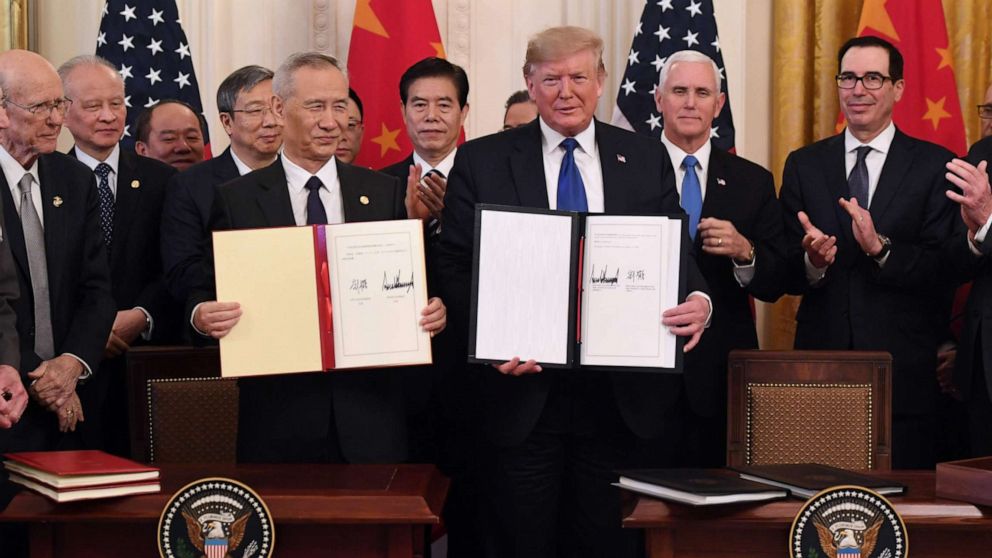Cooperatives: A Trillion Dollar Sector Under Pressure.
In an increasingly interconnected global economy, national policies—especially from economic powerhouses like the United States—can have far-reaching consequences. The recently re-elected 47th President of the United States, Donald J. Trump, has reinstated and expanded a series of tariffs targeting countries such as China, the European Union, and others. While these measures are aimed at protecting American industries and reducing the trade deficit, they have created a cascade of unintended consequences for cooperatives worldwide.
These tariffs, which include duties of up to 25% on steel and 10% on aluminum, have triggered cost increases across multiple industries. Cooperatives—especially those in agriculture, manufacturing, and retail—are among the hardest hit, as they typically operate with minimal margins and rely on international supply chains to remain viable and competitive.

Globally, cooperatives are a major force in the economy. According to the International Co-operative Alliance, there are over 3 million cooperatives generating $2.98 trillion in economic activity and supporting more than 280 million jobs. Many of these are now facing new operational challenges due to the tariffs imposed by the U.S. administration.
For example, farming cooperatives in the United States suffered when China responded with retaliatory tariffs on key exports like soybeans and pork. Although, prior to the tariffs, soybean exports already dropped by 74% in 2024 leading to domestic surpluses and declining prices that severely impacted agricultural co-ops across the Midwest.
🇪🇺 European Co-ops and the Rising Cost of Imports
In Europe, manufacturing and consumer cooperatives have also taken a hit. The European Association of Cooperative Banks reported increased default rates on business loans in Germany, Italy, and Spain, largely attributed to co-ops struggling with higher input costs. Some cooperatives reported production costs rising by as much as 15% due to the increased cost of imported raw materials from the U.S. and China.
🌍 Developing Nations Feel the Pinch
The economic strain doesn’t end in developed markets. In Africa and Southeast Asia, cooperatives rely heavily on affordable access to foreign technology and machinery, much of which originates in the United States. With equipment costs now inflated by 20–30% (International Trade Centre), many co-ops—especially in agriculture and small-scale manufacturing—are scaling back operations or halting expansion plans altogether. This threatens job creation, food security, and economic inclusion in regions already grappling with poverty and underemployment.
🧵 Supply Chain Disruption and Fair Trade Decline
In the Global South, artisan and textile cooperatives that export to American retailers are also struggling. According to the World Fair Trade Organization, exports from artisan co-ops in South Asia fell by 32% over the last two years due to shifting trade rules and heightened costs. This has destabilized income for thousands of women and low-income families who depend on cooperative systems to survive.
💡 Resilience, Innovation, and the Role of Ensign
Despite these challenges, the cooperative model continues to demonstrate its resilience. In Canada and parts of Scandinavia, worker-owned co-ops have responded by sourcing materials locally or pivoting to regional trade blocs to stay competitive. Meanwhile, organizations like Ensign Cooperative are stepping in to offer training, advocacy, and infrastructure support for co-ops navigating this new global trade landscape. With a focus on women-led, sustainable, and community-driven initiatives, Ensign is building cooperative capacity where it’s needed most.
🤝 Why Policy Must Include People
President Trump’s renewed commitment to “America First” policies may resonate domestically, but the global implications are undeniable. Cooperatives—which form the backbone of inclusive economies in both developed and developing countries—are often left to absorb the fallout. Trade reforms that fail to consider the needs of community-based businesses risk widening inequality and undermining global progress toward the Sustainable Development Goals.
🔗 Let’s Cooperate for a Just and Inclusive Economy
At Ensign Cooperative, we champion cooperation, equity, and sustainability. As the world adjusts to a new era of global trade dynamics under President Trump, we call on policymakers, partners, and cooperative leaders to ensure that international trade policy protects—not punishes—people-centered economic models.
📩 Join our movement. Learn more at www.ensign.coop and help us create a cooperative world where no one is left behind.

